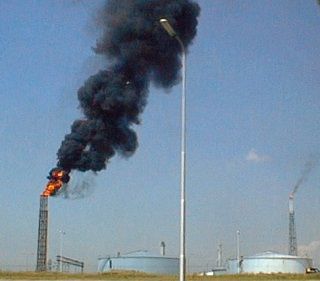The Migration Away From Fossil Fuels

“Much of that “plentiful” natural gas is being extracted from deep underground pockets through hydraulic “fracking,” a water- and chemical-intensive process that involves fracturing the earth to reach gas deposits. The very viscous oil in Canada’s tar sands is pulled from sand and rock through water-intensive steam injection and refining, a process that by some estimates creates 12 percent more greenhouse gases per barrel of final product than extraction of conventional oil. And electricity generated from coal-fired plants has a bigger impact on carbon emissions than electricity from natural-gas-fired plants.”
I completely agree with the concepts here, but I’m not sure that there’s anything here that qualifies as “new.” The real news is that, every day, more people are realizing that fossil fuels are not the answer to our energy future. While they’re certainly not being led to this idea by the energy industry itself, there is a sufficient amount of news from external sources so as to make this conclusion inescapable.
It’s obvious the claims that the energy industry makes, i.e., we have plenty of clean-burning fuel in the ground, are being met with an ever-increasing level of skepticism. Sure, there are only a few tens of thousands of protesters in the recent marches calling upon President Obama to scrap the Keystone XL Pipeline, but, as a participant in our local march, I sensed a huge amount of sympathy for and agreement with our principles, e.g., instead of building the pipeline, let’s create a level playing field for renewable energy by removing the subsidies to the oil companies and calling upon the fossil fuel industries more generally to pay the comprehensive costs of the damage they’re doing to our health and ecosystems.

Reblogged this on Energy post.